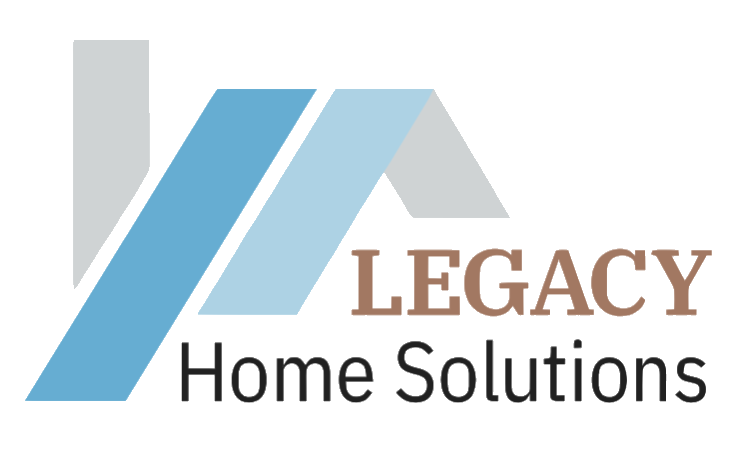
Understanding Closing Costs and Who Pays Them
Understanding the closing costs helps buyers and sellers of real estate transact smoothly while selling a house in Ohio. What are closing costs? Closing costs are all the additional costs and charges incurred during the completion of a real estate transaction.
Some of the closing-associated costs usually include paying for title insurance, appraisal costs, legal fees, escrow fees, and taxes on the home. In Ohio, sellers also seem to be paying closing fees, such as the real estate commission, approximately five to six percent of the total sale value.
Acknowledge that each side of the transaction has different objectives. The last question will affect how costs are assigned. As a rule, the vendors bear the cost of home inspection and loan origination fees.
Some sellers offer a lot of money to clients just to help them move, whether for quick selling or getting their desired price. Knowing what each party will cover makes closing smoother, allowing them to leave without unexpected financial burdens. Each party will have fulfilling expectations, which ensures practicality during the transactions. Legacy Home Solutions, LLC can help guide you through these financial considerations to ensure a fair and efficient closing process.
Understanding the Real Estate Market Trends for Better Home Sales
Understanding real estate market trends is crucial for successfully selling a house in Ohio and determining who covers closing costs. Economic factors such as supply and demand, interest rates, and the overall financial situation strongly influence the Ohio housing market and affect these transactions.
When the market is leaning towards sellers, sustaining the supply may become difficult due to overwhelming demand. This often incentivizes sellers to lower closing costs as they can dictate terms easily. However, if the market has great competition for properties, buyers can likely bargain some or all of the closing costs to be paid by the sellers.
Sellers must pay close attention to shifting market dynamics to negotiate and set prices appropriately. Using real estate analytics and local trends, they can forecast buyers’ expectations and adjust them accordingly.
This information allows him/her to set a realistic listing price and plan strategically around the negotiations, especially when settling costs to ensure the most value to the seller’s wallet when selling a property in Ohio.
Does Buyer or seller pay closing costs in Ohio?
In Ohio, the question of who pays closing costs when selling a house often arises during real estate transactions. Generally, both the buyer and the seller share the responsibility for closing costs, but the exact distribution can vary based on negotiations and local customs.
For sellers in Ohio, typical closing costs may include title insurance, transfer taxes, prorated property taxes, and, in some cases, appraisal-required repair expenses if the lender mandates them. Buyers are usually responsible for loan origination, home inspections, and appraisal fees.
However, it’s important to note that these costs are negotiable, and either party can agree to cover certain expenses to facilitate a smoother transaction. Understanding who pays which closing costs is crucial for both buyers and sellers in Ohio, as it impacts the overall financial aspects of buying or selling a home.
Consulting with a knowledgeable real estate professional can clarify how these costs are typically divided in specific areas of Ohio.
Who Gets the Money From Closing Costs?

Understanding who receives the money from closing costs is crucial for buyers and sellers in a real estate transaction in Ohio. Closing costs encompass a variety of fees associated with finalizing the sale of a property, including appraisal fees, title insurance, escrow fees, and attorney fees.
Typically, these costs are shared between the buyer and seller based on local customs or negotiated agreements. However, specific payments within closing costs go to different parties involved.
For instance, title companies receive funds for conducting title searches and issuing title insurance to protect against legal disputes over property ownership. Lenders collect appraisal fees to ensure the property’s value aligns with the loan amount.
Escrow agents or attorneys might also be paid to facilitate the smooth transfer of funds and documents during closing. Sellers in Ohio must carefully review their closing disclosure statement to understand precisely how much they owe and which entities will ultimately receive payment from these closing costs.
This knowledge prepares sellers financially and ensures transparency throughout the real estate process. Contact us today for personalized guidance.
Is It Common for Buyers to Ask Sellers to Pay Closing Costs?
In the Ohio real estate market, it is standard for buyers to request that sellers cover closing costs. This practice can be particularly prevalent among first-time homebuyers who may have limited funds and are seeking ways to reduce their upfront expenses.
Buyers can alleviate some of the financial burden of purchasing a home by asking the seller to pay closing costs. Sellers in Ohio might agree to this arrangement as a negotiating strategy, especially in a buyer’s market where they need to make their property more attractive than other listings.
However, in a seller’s market, where demand exceeds supply, sellers might be less inclined to cover these additional costs. Ultimately, the decision often hinges on factors such as the overall real estate climate, the property’s desirability, and the negotiations between buyer and seller.
Understanding who typically covers closing costs when selling a house in Ohio helps both parties prepare for potential discussions and financial planning during the transaction process.
How Much Are Closing Costs on a $ 300,000 House?
Understanding closing costs is crucial for buyers and sellers when selling a house in Ohio. For a $300,000 house, closing costs typically range between 2% and 5% of the home’s sale price.
This means you can expect to pay between $6,000 and $15,000 in closing costs. These expenses cover various fees such as title insurance, appraisal, escrow, and attorney fees.
In Ohio, the seller often covers certain costs, like real estate professional commissions and prorated property taxes, while other costs are negotiable between the buyer and seller. Sellers should consider these potential expenses when pricing their homes and negotiating with investor home buyers in Parma and other cities in Ohio to ensure a smooth transaction process.
By understanding who covers what portion of the closing costs, sellers can better prepare financially when selling their property in Ohio.
Essential Steps to Prepare Your House for Sale
Preparing your house for sale in Ohio involves several essential steps to ensure a smooth transaction and potentially higher offers. Firstly, enhancing curb appeal by maintaining the landscaping, repainting the front door, and ensuring the exterior looks inviting is crucial.
Unstuttering and depersonalizing are vital; potential buyers must envision themselves living in the space, so removing personal items and excess furniture can help create a more neutral environment. Conducting minor repairs like leaky faucets, squeaky doors, or cracked tiles can prevent potential buyers from being distracted by minor issues.
A fresh coat of neutral paint colors can breathe new life into the home, making rooms appear larger and brighter. Professional cleaning services can be a worthwhile investment, leaving every corner spotless and emphasizing the home’s best features.
Staging each room strategically can highlight its functionality and maximize its appeal to prospective buyers. Finally, working with an experienced real estate expert familiar with Ohio’s market conditions will provide valuable insights into setting a competitive price point that covers closing costs effectively while attracting serious offers from interested buyers.
How to Handle Repairs and Inspections During the Sale Process
When selling a house in Ohio, handling repairs and inspections is a crucial part of the sale process that can significantly impact closing costs. Sellers should be prepared for a buyer’s home inspection, a standard procedure where potential cash home buyers in Cleveland and surrounding cities in Ohio hire professionals to assess the property’s condition.
This inspection often leads to repair requests that sellers must address before finalizing the sale. Negotiating these repairs is critical; sellers might choose to handle repairs themselves or offer credits towards closing costs instead.
Sellers must understand which repairs are mandatory, such as those related to safety and code compliance, and which are optional cosmetic fixes. Engaging with experienced real estate professionals can provide valuable insights into negotiating repair terms effectively while keeping overall closing costs in check.
By proactively managing inspections and repairs, sellers can facilitate a smoother transaction and potentially reduce their financial responsibilities at closing.
Legal Considerations When Selling Residential Real Estate

Understanding the legal considerations surrounding closing costs is crucial when selling residential real estate in Ohio. In Ohio, buyers and sellers typically negotiate who covers specific closing costs during the sale process.
Sellers often shoulder certain expenses, such as title insurance and prorated property taxes, which can vary based on the sales contract terms. Sellers need to review local laws and regulations that might impact these costs.
Engaging a knowledgeable real estate attorney can help navigate legal complexities and ensure compliance with state-specific requirements. By addressing potential liens or encumbrances on the property title early, sellers can avoid unexpected legal hurdles at closing.
Additionally, Ohio mandates disclosure of any known defects in the property, which could influence negotiations around closing costs if repairs are necessary before finalizing the transaction. Understanding these legal nuances helps streamline the selling process while protecting all parties involved in an Ohio real estate transaction.
Tax Implications of Selling Your Primary Residence
Understanding the tax implications when selling your primary residence in Ohio is crucial. Typically, sellers may be eligible for a capital gains tax exclusion, which can significantly reduce or even eliminate the taxes owed on the profit from the sale of their home.
To qualify for this exclusion, homeowners must have lived in the property as their primary residence for at least two of the last five years before selling. The IRS allows a maximum exclusion of $250,000 for single filers and $500,000 for married couples filing jointly.
It’s important to note that any profit exceeding these amounts may be subject to capital gains tax. Additionally, sellers should consider state-specific tax laws that could affect their net proceeds from the sale.
Consulting with a real estate attorney or tax professional who understands Ohio’s regulations can provide valuable insight into minimizing potential tax liabilities when selling your home.
Pricing Strategies: How to Set the Right Price for Your Home
When selling a house in Ohio, the right pricing strategy is key to attracting buyers and managing closing cost negotiations. Here are essential points to consider:
- Conduct a Market Analysis
– Research current real estate trends in your area to understand what similar homes are selling for. - Compare Recent Sales
– To determine a realistic listing price, look at your neighborhood’s recently sold comparable properties (comps). - Assess Your Home’s Condition
– Factor in the age, condition, and any upgrades or renovations that may increase your home’s value. - Avoid Overpricing or Underpricing
– Pricing too high can lead to a longer time on the market, while pricing too low might attract low offers that don’t cover essential expenses like closing costs. - Understand Buyer Demand
– Evaluate how active the market is in your area to help you decide on a price that encourages competitive offers. - Work With a Local Real Estate Expert
– A knowledgeable agent can offer data-driven insights and help you understand how pricing affects negotiation, especially regarding who pays closing costs.
Staging Tips to Enhance the Appeal of Your House
Staging your home effectively can significantly enhance its appeal to potential buyers in the Ohio real estate market. To make a strong first impression, focus on decluttering and depersonalizing your space, allowing buyers to envision themselves living there.
Neutral colors for walls and décor create a welcoming environment, while strategic lighting enhances the home’s features and makes rooms appear larger. Furniture placement is crucial; it should maximize space and highlight focal points, such as fireplaces or large windows with scenic views.
Adding fresh elements, like plants or flowers, can invigorate the atmosphere. Ensure your home smells inviting using subtle air fresheners or baking cookies before showings.
Paying attention to curb appeal is equally essential; maintain a tidy lawn and clean gutters, and consider adding a fresh coat of paint to the front door to boost attractiveness from the outside. By investing time and effort into staging, sellers in Ohio can potentially increase their home’s market value and expedite the selling process by capturing more interest from prospective buyers.
Preparing for Open Houses and Showings: What You Need to Know
When selling a house in Ohio, preparing for open houses and showings is a critical step that can significantly impact the sale process. Sellers must ensure their home is pristine to attract potential buyers.
This means decluttering spaces, deep cleaning every room, and making necessary repairs to enhance the property’s appeal. Curb appeal should not be overlooked; sellers might consider landscaping or painting the front door to make a strong first impression.
Staging the home with neutral decor can help buyers envision themselves living there, while removing personal items like family photos can help them imagine the space as their own. Sellers should also ensure all lights function and curtains are open to maximize natural light during showings.
Scheduling flexibility is essential, as accommodating potential buyers’ timelines can increase the chances of receiving offers. Understanding these aspects of preparing for open houses and showings helps sellers present their homes effectively within Ohio’s competitive real estate market.
Marketing Techniques to Attract Potential Buyers to Your Property

When selling a house in Ohio, employing effective marketing techniques is crucial to attract potential buyers and ensure a successful sale. One of the most impactful strategies is staging the home to highlight its best features and create an inviting atmosphere that resonates with buyers.
Professional photography and virtual tours can showcase the property online, making it stand out in real estate listings. Additionally, leveraging social media platforms allows for targeted advertising, reaching specific demographics interested in purchasing a home in Ohio.
Hosting open houses allows prospective buyers to experience the property’s layout and neighborhood firsthand. Collaborating with experienced real estate professionals can also enhance marketing efforts, as they possess valuable market insights and networking capabilities to connect with qualified buyers.
By utilizing these comprehensive marketing techniques, sellers can increase visibility and generate interest from serious buyers ready to make competitive offers on their property.
Negotiation Tactics Every Home Seller Should Know
Understanding negotiation tactics can significantly impact who covers the closing costs when selling a house in Ohio. As a home seller, you must know your bargaining power and strategically use it during negotiations.
One effective tactic is highlighting any upgrades or repairs you’ve made to increase the property’s value, which can justify your asking price and reduce the likelihood of covering additional costs. Additionally, knowing the local market conditions gives you an edge; in a seller’s market, where demand outpaces supply, buyers might be more willing to shoulder closing costs to secure the deal.
Offering incentives such as covering part of the closing costs can also appeal to buyers and facilitate quicker sales, but this should be weighed against the final sale price you’re aiming for. Open communication with potential buyers about their concerns and showing flexibility without compromising your bottom line can lead to a mutually beneficial agreement on closing cost responsibilities.
Working closely with a real estate professional familiar with Ohio’s market nuances can further enhance your negotiation strategy by providing insights into customary practices and buyer expectations in your area.
Navigating Offers and Counteroffers: A Seller’s Guide
Understanding the dynamics of offers and counteroffers is crucial for effectively navigating closing costs when selling a house in Ohio. As a seller, you should be prepared to evaluate initial offers from potential buyers carefully, considering how these offers address closing costs, including fees like title insurance, escrow fees, and transfer taxes.
In Ohio, it’s common practice for sellers to cover certain closing costs, but this is negotiable during the offer stage. Sellers should strategically use counteroffers to negotiate terms that are favorable to them while remaining competitive in the market.
This might involve proposing adjustments to the purchase price or renegotiating which party will cover specific closing expenses. Being informed about typical buyer expectations and local market trends will empower sellers to make more advantageous negotiation decisions.
Working closely with a real estate professional who understands Ohio’s housing market can also provide valuable insights into crafting effective counteroffers that align with your financial goals while addressing any concerns related to closing costs.
Evaluating Cash Offers Versus Financed Buyers
When selling a house in Ohio, evaluating cash offers versus financed buyers is critical in real estate. Cash offers often present an attractive option for sellers due to their simplicity and speed, as these transactions typically bypass many of the hurdles associated with traditional financing.
This can lead to quicker closings, reducing the time the seller incurs carrying costs such as mortgage payments, property taxes, and maintenance expenses. Moreover, cash offers generally come with fewer contingencies, which can mean fewer negotiations and less risk of the deal falling through.
However, financed buyers might be willing to offer a higher purchase price since they leverage loans to cover closing costs and other expenses associated with their mortgage approval process. Sellers must consider these factors when deciding whether to accept a cash offer or proceed with a buyer reliant on financing.
Understanding how each option impacts potential profits and closing timelines is crucial for making an informed decision in Ohio’s real estate market.
Does your house need to be sold? Sell fast to avoid expensive repairs or for a hassle-free transaction. Legacy Home Solutions, LLC is available to assist. We manage every detail, provide reasonable cash offers, and ensure a smooth transaction. Have questions, or are you prepared to sell? For a no-obligation offer, contact us at (440) 973-6024. Start now!
| THE HOME SALE | BANKRATE.COM | BANKRATE | REALTORS | MORTGAGE LOAN | MORTGAGE LENDER |
| LENDING | LOAN APPLICATION | ESCROW ACCOUNT | REFINANCE | REFINANCING | HOME APPRAISAL |
| HOUZEO | CALCULATOR | HOME INSPECTORS | FSBO | FOR SALE BY OWNER | HOME EQUITY |
| EQUITY | CREDIT REPORT | CONVEYANCE | AMERICA | U.S. | UNDERWRITING |
| UNDERWRITERS | POLICY | MLS | HOMEOWNER’S INSURANCE | CONCESSIONS | |
| WARRANTY | THE NATIONAL ASSOCIATION OF REALTORS | NAR | HOA | HOME WARRANTY | FLAT FEE |
| CONSUMERS | BUDGET | BLOG | AVERAGE | TAX RATE | INSURANCE POLICIES |
| INSURANCE POLICY | ESTATE TAXES | DOWN PAYMENT | DEED | CREDIT SCORE | CREDIT CARD |
| COURIER | COMPANY | BROKERS | SELLERS CLOSING COSTS | COSTS FOR SELLERS | COSTS FOR BUYERS |
| CLOSING COSTS FOR | BUYERS CLOSING COSTS | PROPERTY TAXES AND | OHIO CLOSING COSTS | SELLER CLOSING COSTS | OF THE PROPERTY |
| IN OHIO ARE | THE BUYERS CLOSING | OHIO SELLER CLOSING | HOME SALE PRICE | OF THE BUYERS | CLOSING COSTS CALCULATOR |
| COSTS CLOSING COSTS | A TITLE SEARCH | SALE PRICE IN | IN OHIO THE | YOUR CLOSING COSTS | OF THE HOME SALE |
| OWNERS TITLE INSURANCE | THE BUYERS’ CLOSING COSTS | THE DOWN PAYMENT | HOMES PURCHASE PRICE | A HOME INSPECTION | YOUR REAL ESTATE |
| BUYER CLOSING COSTS | LENDERS TITLE INSURANCE | CLOSING COST CALCULATOR | CLOSING COSTS FOR BUYERS | OF THE LOAN AMOUNT | CLOSING COSTS FOR SELLERS |
| ARE CLOSING COSTS IN | SELLER CLOSING COSTS IN | HOME SALE PRICE | COSTS IN OHIO ARE | OF THE BUYERS CLOSING | OHIO SELLER CLOSING COSTS |
| CLOSING COSTS CLOSING COSTS | ARE CLOSING COSTS CLOSING | WHAT ARE CLOSING COSTS | THE HOME SALE PRICE | IN A BUYERS MARKET | PAYS CLOSING COSTS IN |
| THE HOME PURCHASE PRICE | TYPICAL CLOSING COSTS IN | COSTS IN OHIO THE | PAID BY THE SELLER | COSTS FOR SELLERS IN | COSTS IN OHIO SELLERS |
| THE HOME PURCHASE PRICE | OF THE HOMES PURCHASE | WITH YOUR REAL ESTATE | PAY FOR THE BUYERS |
